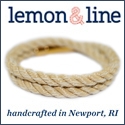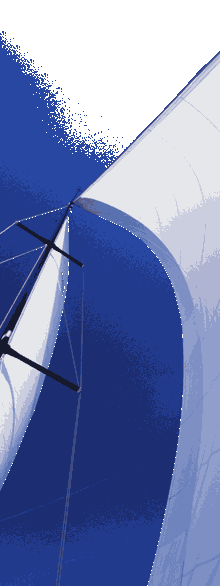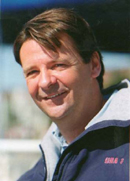
|
|
|
Scuttlebutt News: Disabled advances, future aspirations By Brian Gleason
In spring 2010, when the International Association for Disabled Sailing was looking for a South Florida site to hold its 2012 world championships, Callahan, who has a home in Cape Coral, Fla., told IFDS President Linda Merkle about a group in Charlotte County that might be game. He had read and heard about the Charlotte Harbor Regatta, held in February 2010. Before the year was out, Callahan would become a member of Charlotte Harbor Yacht Club, take an advisory role with the IFDS to help shepherd the event and begin training for the Jan. 7-15, 2012 IFDS Worlds on Charlotte Harbor and his second Paralympic Games in Weymouth, England. Callahan, who skippers a Sonar as a Paralympic member of the US Sailing Team AlphaGraphics 2011, shares his story, his motivations and some reflections on life and what the Charlotte County community can expect as the 2012 IFDS Worlds approach. Callahan: As the skipper of the USA team and representing our country, it was one of the proudest moments in my life. I was overcome with euphoric emotion and pride to enter this massive stadium with 110,000 people of all nationalities chanting, “USA!, USA!, USA!” At that moment, I realized how fortunate I was to be from America. Racing sailboats is about winning or losing, representing your whole country is more of a massive responsibility to do your best. Callahan: There is no comparison. We were barely a blip on anyone’s radar screen 15 years ago. Now, after competing on three different continents and 13 countries, as well as numerous cities across America, disabled sailors have become folk heroes in communities and in the media, because we represent living proof that anyone can overcome their own adversities. It is gratifying to know that you have not only changed the lives of individuals, but also the soul and fabric of a community by having trained and competed in a city, town or region. After watching 100 disabled sailors conquer a sport originally intended for fully able-bodied people, individuals, neighbors, communities and cities ultimately realize their lives can be just what they always imagined. Callahan: Charlotte Harbor is the largest “diamond in the rough” in all of sailing in the world today. The natural wind patterns remind me of Sydney, Australia. More importantly, the Charlotte County residents remind me of the Australians as well - giving, caring and thoughtful people. Callahan: It is a game changer. Especially in the wake of the disaster of Hurricane Charley, the Charlotte community is in a unique position to capture the reformation of the real fabric of the community. Just by the mere fact of having 100 Paralympic-level, disabled athletes, from more than 20 countries, sailing and competing here at a world-class level, this event will permeate the heart of Charlotte County’s residents and elevate every single one of them to want to increasingly believe in their own abilities. This event will infect the whole community with a “can-do” attitude. In the words of the writer George Bernard Shaw, people of Charlotte County will no longer ask “Why?” but rather “Why not?” Additionally, the economic impact is not only immediate, but can also leave an everlasting legacy of new opportunities for employment in industries that create marine-related and tourism jobs. Just as important, it will elevate the unique stature of the area. People from all parts of the world will want to visit Charlotte Harbor. This truly world-class event breeds enthusiasm which can ultimately generate literally millions of dollars of economic impact that can be sustainable if the community chooses to capitalize on it. Callahan: You get to see and feel the goodness in the world. When competing at this level, there is much interaction with corporations, government officials and ordinary people that one would not ordinarily experience. You quickly come to realize that people truly want to help others, and not impede any progress whatsoever. By human nature, people would rather “give” than “take.” World-class disabled athletes and their competitions invite people to be part of a unique experience that allows both the community and the athlete to share a rare aspect of the world together. I have been fortunate to develop friendships around the world and across the country. More importantly, sailing has given me a platform to ignite a fire in both able-bodied and disabled people to know that anyone can overcome their adversity, believing you truly can accomplish anything you want. You just have to get started. Callahan: Sailing is only a metaphor for life and, for me, a platform to help others. Breaking my neck and becoming paralyzed at age 21, and being told you would never get out of bed was a deep hole that could be perceived as impossible. But somehow, I knew in my heart that I could prevail. The road to recovery took faith as well as people willing to help in relatively small but meaningful ways. After six years of daily focus on physical therapy, life rewarded me for my efforts. I now have a spectacular wife, twin 7-year-old boys who are the center of my universe, and an education combined with work opportunities that I have converted in an attempt to benefit others. Other than Paralympic racing for the USA, my purpose in life is to create opportunities for others, the same way that people tried to do for me. Consequently, I feel a personal responsibility to help disabled or able-bodied people with any challenges, because I know each of them can beat the odds. I know, because I did it, and the only difference between me and the next person is that I believed I could do it. Physical or mental barriers are only real if you let them be real. I have never come across a barrier or a problem that cannot be solved. In retrospect, you realize the barrier is only a large speed bump in the road. You may get tossed around a bit when you hit it too hard, but there is always a way to get over it. Sailing has created opportunities to live what I believe. All of us have an innate ability to accomplish what we want if we are willing to navigate over the speed bumps. We are all born with an internal road map to succeed. Callahan: Sometimes it is hard for able-bodied people to grasp the concept that disabled people are often highly able to focus and overcome obstacles as their normal course of business. With this mentality of thinking, this is how they accomplish things every minute of the day. Callahan: Sailing or any other activity is just a game with a lot of moving parts - just like life. It is sometimes tricky, but you can choose to try your absolute best, and probably come out the other end on or near the top. By not trying your best, I can almost guarantee only mediocrity as your result. So, why not give your particular challenge all your effort? It does not cost you anything but your time and effort - both are free, and a gift to all of us. Callahan: Charlotte Harbor will host some of the most exceptional athletes from all over the world, who happen to have a disability. They truly are extraordinary people who are also very approachable. I have been utilizing an electric wheelchair as a quadriplegic for 32 years, and I continue to be in awe of my competitors - but not so much that our USA team cannot beat their team! Reprinted courtesy of the Charlotte Sun, April 25, 2011 back to top |







|


